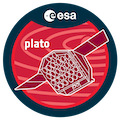Speaker
Description
Fitting planet formation models to exoplanet demographics necessitates to generate hundred of thousands of systems. Yet, modelling every planet formation processes (growth, migration), in a single simulation is still beyond our computational capabilities. The population synthesis approach aims at combining fast semi-analytical recipes modelling the important physical processes at play, to keep an affordable computational cost. The bottleneck of the current state-of-the-art simulations is the N-body interactions between planetary embryos. In this work we propose a framework to replace N-body integrations in population synthesis models by semi-analytical recipes derived from recent breakthroughs in our understanding of planet dynamics. We self-consistently model resonances, instability timescales, planet scattering and collisions. We combine this approach with state-of-the-art planet growth and migration modelling. We statistically reproduce results obtained in N-body simulations, for a fraction of the computational cost. We discuss how this approach allows to use the exoplanet population planetary system formation and architecture.

